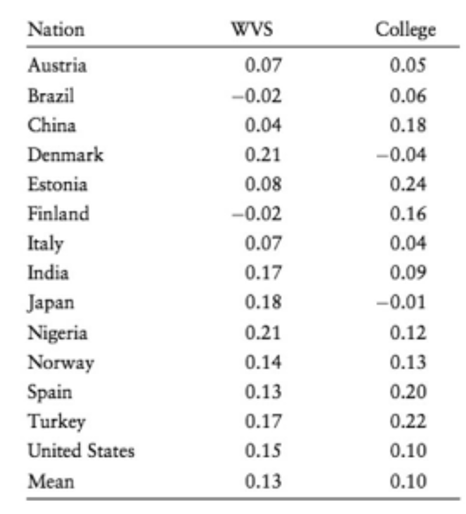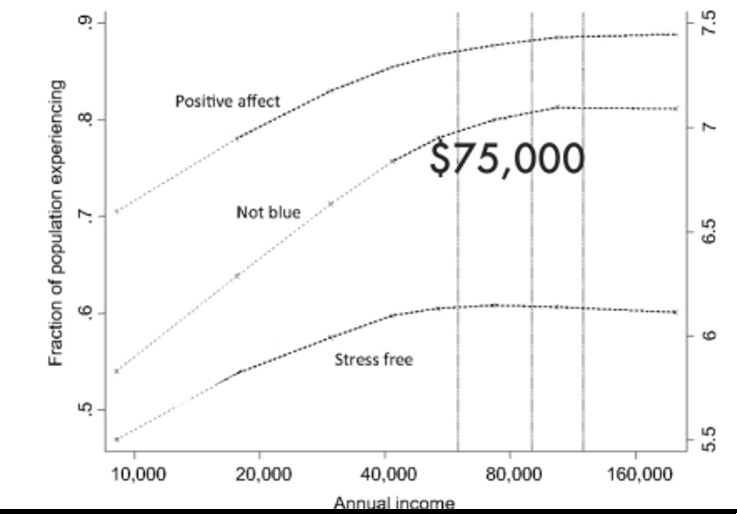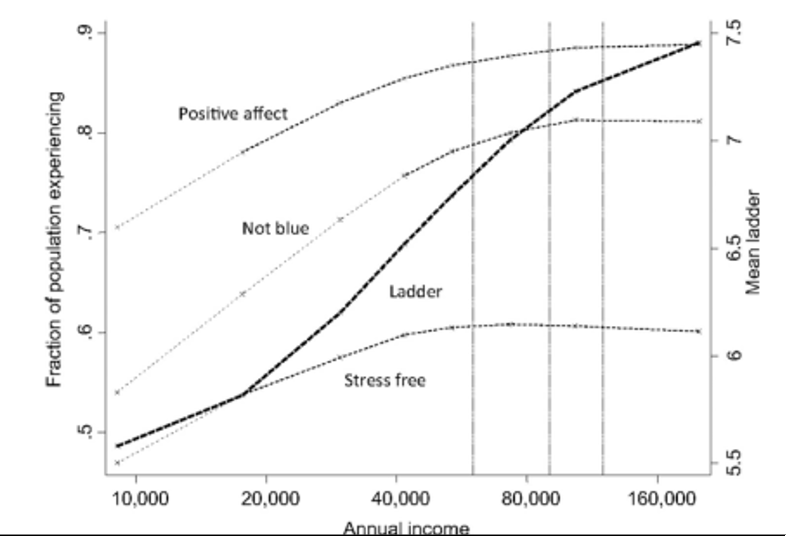Gilbert showed that college students, when rejected for a job, did not become particularly unhappy. For a fair decision, they were very mildly unhappy. For an unfair decision, their happiness was not at all affected.
Another study showed that typically, what salary we think we need is always higher than what they currently have. The more you get paid, the higher the salary you think you need to be happy.
Between 1967 and 2005, the percentage of freshmen who thought developing a meaningful philosophy in life was important went from 86% to 52%.
Below is the correlation between income and happiness for several countries. As you can see, it’s almost none.

Poor countries do have a stronger correlation, but not that much, and it peaks at a point.
Between 1940 and 2015, the average happiness of a family dropped from 7.5 to 7.2
Here is what Kahneman found out is the relationship between emotional well being and income:

It levels at $75K. This study was performed in 2008-2009, and they polled 450K Americans.
But even though people don’t actually tend to get happier beyond $75K, their subjective self assessment does rise with income:
